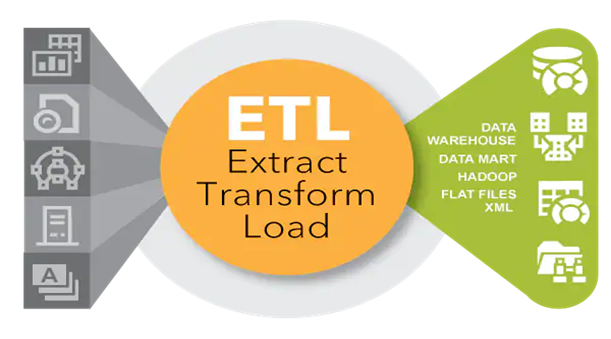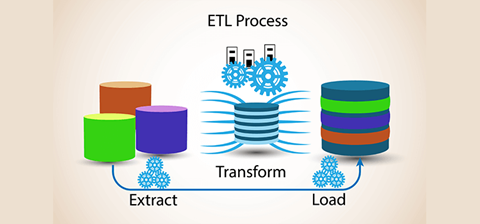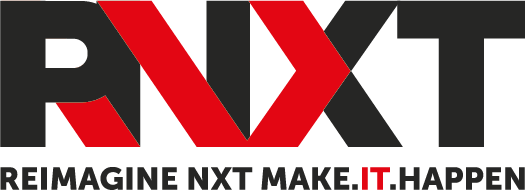Data Practice
ETL
AI & ML
ETL
ETL leverages the benefits of the cloud to provide accessibility without sacrificing security and delivers easy scalability at a manageable cost. SaaS-based pipeline tools enable you to leave backups, encryption, security, and infrastructure issues to the vendor and focus on moving your data to the cloud. Full featured, cloud deployed ETL products enable you to take advantage of the speed, scale, savings, and simplicity of the cloud while still maintaining control over security, governance, and compliance.


Snowflake Schema
The snowflake schema is an expansion of the star schema where each point of the star explodes into more points. It is called snowflake schema because the diagram of snowflake schema resembles a snowflake. Snowflaking is a method of normalizing the dimension tables in a STAR schema. When we normalize all the dimension tables entirely, the resultant structure resembles a snowflake with the fact table in the middle.
Snowflaking is used to develop the performance of specific queries. The schema is diagramed with each fact surrounded by its associated dimensions, and those dimensions are related to other dimensions, branching out into a snowflake pattern.
Data Lake
Develop A Comprehensive Data Mapping Strategy
Automate ETL Processes
Automating ETL processes also helps ensure that data is accurately and consistently moved into the data warehouse, reducing the risk of errors and omissions. Automation is nothing new, and it helps data warehousing experts achieve more in less time.
Ensure Data Quality
Ensuring data quality helps organizations avoid costly mistakes and ensures that they have the accurate and consistent data they need to make informed decisions. Organizations working with data warehouses especially focus on data quality to yield ideal results.
Monitor And Measure ETL Performance
Monitoring ETL performance also helps organizations identify trends and patterns in their data, allowing them to make informed decisions about their data management strategies. Expert data warehousing consultants can help companies monitor performance effectively.
Stay Current with Evolving Technologies
Simply put, ETL plays a crucial role in data warehousing by enabling organizations to extract valuable insights from their data, make informed decisions, and drive business growth.
AI & ML
AI/ML—short for artificial intelligence (AI) and machine learning (ML)—represents an important evolution in computer science and data processing that is quickly transforming a vast array of industries.
Artificial Intelligence (AI)
Machine Learning (ML)
NLP
Artificial intelligence is everywhere
To name a few, AI is widely used in:
• Business processes optimization
• Data analytics
• Digital marketing
• Supply chain and Logistics
• Cyber security
• Our daily lives
When it comes to AI in our daily lives, we interact with voice-to-text, personal assistants, autocorrect, smart recommendations on social media or streaming services, and more. Robotics, as a part of AI, is used in agriculture, military, healthcare, the automotive industry, and many other fields. Even kitchen robots – steel chefs – are a trend that changes how we get food and eat. These are only the apparent use cases of artificial intelligence and related technologies we may interact with. See the illustration above for more examples.
Specific practical applications of AI include modern web search engines, personal assistant programs that understand spoken language, self-driving vehicles, and recommendation engines, such as those used by Spotify and Netflix.
AI/ML Examples and Use Cases
HEALTHCARE
TELECOMMUNICATIONS
INSURANCE
FINANCIAL SERVICES
AUTOMOTIVE
ENERGY
NLP
NLP USE CASES
MACHINE TRANSLATION
VIRTUAL AGENTS AND CHATBOTS
SOCIAL MEDIA SENTIMENT ANALYSIS
TEXT SUMMARIZATION
ChatGPT – Leveraging Power of NLP
Many users are awed at its ability to provide human-quality responses, stimulate the feeling that it may eventually have the power to disrupt how humans interact with computers and change how information is retrieved.
Large language models perform the task of predicting the next word in a series of words.
Reinforcement Learning with Human Feedback (RLHF) is an additional layer of training that uses human feedback to help ChatGPT learn the ability to follow directions and generate responses that are satisfying to humans.

Speak to Us Today
Are you searching for answers or would like to receive more information on our Cloud Consulting Services? Do you wish a more detailed advice from our experts?
